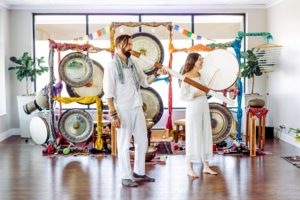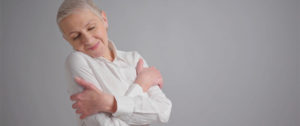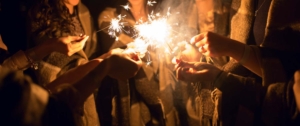photo: Bettmann Archive/Getty Images
by Astara
In honor of Rosa Parks‘ birthday today, I encourage you to ask yourself: Am I living the life that wants to be lived in me? When we listen to our true self that speaks through our heart, our life becomes more aligned. Yet, as we take deep honest care of self from our core compass, our actions have the possibility to reveal backlash from the world-at-large. The response might be a little messy or a lot. In many cultures, echoed in family upbringing, we are encouraged to be selfless and fit in, at the cost of our own truth. The reasons vary: to be safe, to belong, to be loved.
Truth: When we stop pleasing others, they stop being pleased.
I have discovered this in my own life across the years. Yet, we are hard-wired for belonging as Brené Brown reminds us, so how do we care for ourselves and also find belonging? We build resiliency tools such as vulnerability and we embody ourselves fully.
Living Undivided
The most extreme examples of the backlash that can occur when we act on our true self appears in the realm of civic engagement. Rosa Parks decided one day to sit at the front of the bus in a very segregated world. Her arrest, and what occurred after, changed history forever. She made a decision, no matter the price, to act on her inner knowing. Hers was not an act of defiance. Hers was an act of radical self-care. She was tired. That is why she sat.
A lot has evolved since Rosa Parks, and yet we still have much work to do in the realm of unity, tolerance, and equality. And especially self-care. All over the world today we still see intolerance based on fear and separation. The human condition is a complex one, because our minds have convincing arguments about why and how we need to protect ourselves. We see ourselves as separate from each other, from nature, from the universe. To be undivided in the world, you have to start inside. To be undivided within means to allow our gut, heart and head to work together. We have to do the interpersonal work and learn how to not abandon ourselves to our fears.
To be undivided within takes great courage in a world that is quite divided and comfortably numb. Our society is mind-centered and the mind has a left brain and a right brain, so the mind is naturally divided. Our brains are incredible, but they were not intended to be in charge. The left hemisphere helps us find our boundaries, our edges, our definitions. The right hemisphere helps us connect, create, and see the unity of everything. The mind is leading instead of collaborating with our greater bio-intelligence, with our spirit. Unfortunately, logic, reason, and analysis has become the value system prioritized over love. Our greater humanity has been silenced in service to our illusionary fears for a millennia. Mind says: your on the bus or off the bus. Mind says: you are in or you are out. Mind says: you have two choices, this or that. It will always be split. And this is the generic message of our culture.
Self-care as a Civic Act
When we are in our hearts, following our gut, and letting our brilliant minds be led by our greater intelligence, we are orienting towards the whole. Suddenly, we are using all three of our brains instead of just one. And voila, a world of possibility opens up and there are more than two options. We become multidimensional. We welcome paradox, and find patience in contradictions of the mind. We discover that to be a part of the whole, we have to know ourselves deeply and take action on our own behalf. To be good collaborators, we have to be excellent at self-care. To have beautiful cooperation, we need a world population honoring true self.
“Is the life I am living the same as the life that wants to live in me?” – Parker Palmer
So choosing self-care becomes the most civic-minded act any of us can do. And it takes great courage in our world. Throughout history there are well-known or lesser known walking permission slips around you inviting you to choose yourself and in turn enjoy collaboration, cooperation and connection. Today, we honor Rosa Parks’ decision to care for herself. When you are that tired, it becomes a “no matter what.” We honor the shoulders she stands on, such as Claudette Colvin who had a historic moment before Rosa Parks. Claudette was a 15-year-old who also sat in the front of a segregated bus and refused to get up. She sat in her truth. Her arrest and small bit of press led to the moment that Rosa Parks choose. And Rosa Parks led to Martin Luther King Jr.’s bravery.
Like a pebble in a pond, we are still feeling the ripples of all those influential actions. Today, we are seeing brave decisions everywhere, with humans standing for what they believe in more and more. Taking risks for their truth, and being willing to pay the tax on the societal response. Climate change activism with the teen Greta Thurnberg and many others. Transgender rights with AC Dumlao and others. Women’s rights and the #metoo movement. Civil rights. Human rights. The headlines are filled with teens taking to the streets to activate the older generation, celebrities getting arrested for earth activism, and on and on.
Even popular culture is expressing some amazing bravery such as the J. Lo and Shakira’s half-time show at the Super Bowl Saturday. Check out Taylor Swifts documentary Miss Americana for a glimpse into another honest choice of a pop artist to bring her true self forward. These are just a few examples. And not all make it to the news. I can tell you this. Authenticity is on the rise. And now we must meet it in ourselves daily by choosing coherence and training our mind to find us.
Let Your Life Speak
This beautiful timely excerpt from Let Your Life Speak, by Parker Palmer is insightful and poignant. May this help you dive into the authentic grief, pain, anger, bravery and loving courage of the LGBT, black lives matter, climate change, #metoo and other conscious tolerance movements. Authenticity stirs inside you. May you choose to live an undivided life:
Self-care is never a selfish act–it is simply good stewardship of the only gift I have, the gift I was put on earth to offer to others. Anytime we can listen to true self and give it the care it requires, we do so not only for ourselves but for the many others whose lives we touch.
There are at least two ways to understand the link between selfhood and service. One is offered by the poet Rumi in his piercing observation: “If you are here unfaithfully with us, you’re causing terrible damage.” If we are unfaithful to true self, we will extract a price from others. We will make promises we cannot keep, build houses from flimsy stuff, conjure dreams that evolve into nightmares, and other people will suffer–if we are unfaithful to true self.
I will examine that sort of unfaithfulness, and its consequences, later in this book. But a more inspiring way of understanding the link between selfhood and service is to study the lives of people who have been here faithfully with us. Look, for example, at the great liberation movements that have served humanity so well–in Eastern Europe, Latin America, and South Africa, among women, African Americans, and our gay and lesbian brothers and sisters. What we see is simple but often ignored: the movements that transform us, our relations, and our world emerge from the lives of people who decide to care for their authentic selfhood.
The social systems in which these people must survive often try to force them to live in a way untrue to who they are. If you are poor, you are supposed to accept, with gratitude, half a loaf or less; if you are black, you are supposed to suffer racism without protest; if you are gay, you are supposed to pretend that you are not. You and I may not know, but we can at least imagine, how tempting it would be to mask one’s truth in situations of the sort–because the system threatens punishment if one does not.
But in spite of that threat, or because of it, the people who plant the seeds of movements make a critical decision: they decide to live “divided no more.” They decide no longer to act on the outside in a way that contradicts some truth about themselves that they hold deeply on the inside. They decide to claim authentic selfhood and act it out–and their decisions ripple out to transform the society in which they live, serving the selfhood of millions of others.
I call this the “Rosa Parks decision” because that remarkable woman is so emblematic of what the undivided life can mean. Most of us know her story, the story of an African-American woman who, at the time she made her decision, was a seamstress in her early forties. On December 1, 1955, in Montgomery, Alabama, Rosa Parks did something she was not supposed to do: she sat down in the front of the bus in one of the seats reserved for whites–a dangerous, daring, and provocative act in a racist society.
Legend has it that years later a graduate student came to Rosa Parks and asked, “Why did you sit down at the front of the bus that day?” Rosa Parks did not say that she sat down to launch a movement, because her motives were more elemental than that. She said, “I sat down because I was tired.” But she did not mean that her feet were tired. She meant that her soul was tired, her heart was tired, her whole being was tired of playing by racist rules, of denying her soul’s claim to selfhood.
Of course, there were many forces aiding and abetting Rosa Parks’s decision to live divided no more. She had studied the theory and tactics of nonviolence at the Highlander folk school, where Martin Luther King Jr. was also a student. She was secretary of the Montgomery chapter of the National Association for the Advancement of Colored People, whose members had been discussing civil disobedience.
But in the moment she sat down at the front of the bus on that the December day, she had no guarantee that the theory of nonviolence would work or that her community would back her up. It was a moment of existential truth, of claiming authentic self, of reclaiming birthright giftedness–and in that moment she set in motion a process that changed both the lay and the law of the land.
Rosa Parks sat down because she had reached a point where it was essential to embrace her true vocation–not as someone who would reshape our society but as someone who would live out her full self in the world. She decided, “I will no longer act on the outside in a way that contradicts the truth that I hold deeply on the inside. I will no longer act as if I were less than the whole person I know myself inwardly to be.”
Where does one get the courage to “sit down at the front of the bus” in a society that punishes anyone who decides to live divided no more? After all, conventional wisdom recommends the divided life as the safe and sane way to go: “Don’t wear your heart on your sleeve.” “Don’t make a federal case out of it.” “Don’t show them the whites of your eyes.” These are all the cliched ways we tell each other to keep personal truth apart from public life, lest we make ourselves vulnerable in that rough-and-tumble realm.
Where do people find the courage to live divided no more when they know they will be punished for it? The answer I have seen in the lives of people like Rosa Parks is simple: these people have transformed the notion of punishment itself. They have come to understand that no punishment anyone might inflict on them could possibly be worse than the punishment they inflict on themselves by conspiring in their own diminishment.
In the Rosa Parks story, that insight emerges in a wonderful way. After she had sat at the front of the bus for a while, the police came aboard and said, “You know, if you continue to sit there, we are going to have to throw you in jail.”
Rosa Parks replied, “You may do that…,” which is a very polite way of saying, “What could your jail of stone and steel possibly mean to me, compared to the self-imposed imprisonment I’ve suffered for forty years–the prison I’ve just walked out of by refusing to conspire any longer with this racist system?”
The punishment imposed on us for claiming true self can never be worse then the punishment we impose on ourselves by failing to make that claim. And the converse is true as well: no reward anyone might give us could possibly be greater than the reward that comes from living by our own best lights.
You and I may not have Rosa Parks’s particular battle to fight, the battle with institutional racism. The universal element in history is not the substance of her fight but the selfhood in which she stood while she fought it–for each of us holds the challenge and the promise of naming and claiming true self.
But if the Rosa Parks story is to help us discern our own vocations, we must see her as the ordinary person she is. That will be difficult to do because we have made her into superwoman–and we have done it to protect ourselves. If we can keep Rosa Parks in a museum as an untouchable icon of truth, we will remain untouchable as well: we can put her up on a pedestal and praise her, world without end, never finding ourselves challenged by her life.
Since my own life runs no risk of being displayed in a museum case, I want to return briefly to the story I know best–my own. Unlike Rosa Parks, I never took a singular, dramatic action that might create the energy transformation around the institutions I care about. Instead, I tried to abandon those institutions through an invasive, crab leg movement that I did not want to acknowledge, even to my self.
But a funny thing happened on the way to my vocation. Today, twenty-five years after I left education in anger and fear, my work is deeply related to the renewal of educational institutions. I believe that this is possible only because my true self dragged me, kicking and screaming, toward honoring its nature and needs, forcing me to find my rightful place in the ecosystem of life, to find a right relation to institutions with which I have a lifelong lover’s quarrel. Had I denied my true self, remaining “at my post” simply because I was paralyzed with fear, I would almost certainly be lost in bitterness today instead of serving a cause I care about.
Rosa Parks took her stand with clarity and courage. I took mine by diversion and default. Some journeys are direct, and some are circuitous; some are heroic, and some are fearful and muddled. But every journey, honestly undertaken, stands a chance of taking us toward the place where our deep gladness meets the world’s deep need.
As May Sarton reminds us, that pilgrimage toward true self will take “time, many years and places.” The world needs people with the patience and the passion to make that pilgrimage not only for their own sake but also as a social and political act. The world still waits for the truth that will set us free–my truth, your truth, our truth–the truth that was seated in the earth when each of us arrived here in the image of God. Cultivating that truth, I believe, is the authentic vocation of every human being.”
-excerpt from Let Your Life Speak, by Parker Palmer






